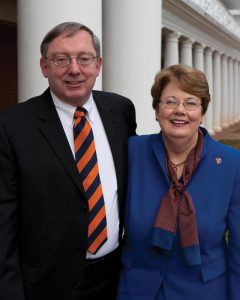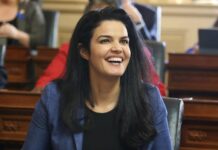On Monday, University of Virginia President Teresa Sullivan and her husband, law professor Douglas Laycock, announced that they will be donating $100,000 to the Bicentennial Scholars Fund, making them the first contributors.

The Bicentennial Scholars Fund is a newly established endowment which will support student scholarships as the University begins its third century of operation. The endowment was founded by the University of Virginia’s Board of Visitors, who voted in its favor earlier in December.
The Bicentennial Scholars Fund could reach up to $300 million via the University of Virginia’s Strategic Investment Fund and Philanthropic donations. To kick off the latter, The University of Virginia’s President Teresa A. Sullivan and her husband, Law Professor Douglas Laycock, have made the first generous donation.
Sullivan and Laycock’s donation will be used towards need-based scholarships in order to give all students an equal opportunity to attend The University and allow bright minds who are unable to afford tuition to shine under The University’s name.
The $100,000 donation is only part of Sullivan and Laycock’s philanthropic contributions to The University. They have contributed over $600,000 towards education and extracurricular activities so far, including funds for the Rotunda’s restoration, financial aid, and scholarships.
Another positive aspect of the Bicentennial Scholars Fund is that it will decrease the chances of future tuition increases by funding a growing percentage of financial aid from this endowment.
The University of Virginia’s Board of Visitors approved a matching investment from the Strategic Investment Fund of $1 for every $2 in commitments for endowed scholarships of $100,000 or more. Donations worth more than $1 million are eligible for a dollar-for-dollar match.
The endowment will benefit all students attending The University. The Strategic Investment Fund, permitted in February, provides investments in UVa education without relying on tax dollars or tuition, thus being able to fund student services such as research, economic development, access and affordability, and the overall academic experience.
The University’s mission is that to recruit the country’s brightest minds and provide them with a high quality education and experience. Making affordability and tuition a secondary aspect of the application process in order to reach a broader audience is only one of the steps that The University of Virginia has taken to accommodate its many students. This goes to show how The University is more interested in its students success rather than the depth of their family’s pockets.
















